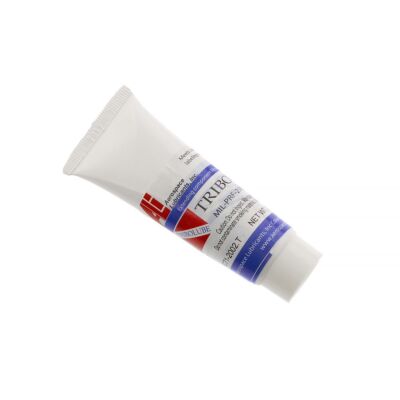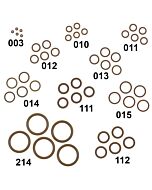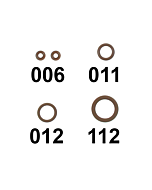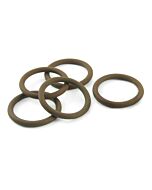Tribolube 71 O2 Compatible Lubricant
- Tribolube® lubrication products are suitable for scuba diving applications
- Provides superior extreme pressure and anti-wear properties - extends equipment life by reducing corrosion
- Synthetic lubricant that is chemically inert, oxygen-compatible, non-migrating, and odorless
- For both open-circuit & closed-circuit diving systems - compatible with all materials used in scuba
- Offers significantly reduced residue buildup in comparison to other oxygen compatible lubricants
Tribolube 71 O2 Compatible Lubricant
With over 35 years of background science, Tribolube offers superior extreme pressure and anti-wear properties, thus extending equipment life by reducing wear and corrosion. Tribolube is a synthetic lubricant that is chemically inert, oxygen-compatible, non-migrating, and odorless. Tribolube 71 is recommended for both open-circuit & closed-circuit diving systems and is compatible with all o-ring seals and materials used in the scuba industry. Tribolube also offers significantly reduced residue buildup in comparison to other oxygen compatible lubricants.
Tribolube 71 is available in a choice of three types of packaging: a { 2 oz | 57 g } tube good for storing in your gear bag, a { 2 oz | 57 g } syringe good on the work bench, as well as a handy { 0.2 oz | 5 g } single use pillow pak that is useful anywhere.
Tribolube 71 is a perfluoropolyether (PFPE) based lubricant with polytetrafluoroethylene (PTFE) thickener. The packaging for Tribolube is marked with a standard expiration date required for use in military specification (MIL Spec) applications described by MIL-PRF-27617 Types 1,2,3. However, we are advised the expiration date does not apply to recreational diving; for use in diving applications the product has an indefinite shelf life and does not expire. Per Aerospace Lubrication, Inc: "The shelf life only pertains to the MIL specifications as that is the requirement of the specifications when used by the military."
| Brand | Aerospace Lubricants |
|---|---|
| SKU | ASL-PC71-97xx |
| Weight | 0.250000 |
Customer Reviews
 WARNING
WARNING
While oxygen compatible materials typically have higher temperatures of ignition than hydrocarbons, nearly all oxygen compatible lubricants and O-rings can still serve as fuel in the kindling chain of an oxygen fire. An unwelcome side effect of oxygen compatibility is when the materials do burn, their combustion byproducts can be extremely toxic gases. The use of oxygen compatible materials does not eliminate the need to always follow best practices for oxygen handing, including avoiding contamination and opening valves slowly.
Dive Gear Express only sells lubricants that are supplied directly from the factory in their carefully selected packaging, but some individuals and even a few retailers are purchasing in bulk containers and then repackaging it in smaller sizes. Aerospace Lubricants has advised us this is an unapproved and possibly unsafe practice. These unapproved package types contain mold release agents, silicone treated rubber stoppers in the syringes, and dyes in colored containers, all of which can leach into the lubricant itself. These containers, along with the repackaging conditions themselves, are certain to produce lubricants which are contaminated and no longer suitable for oxygen service.
Our products are intended for use in SCUBA diving related applications; they are not intended for use in medical, aerospace, or industrial applications. Purchases for use in non-diving applications are not qualified for return or refund. We are not able to supply certificates of conformance to any specific requirements or specifications such as Mil-Spec, OSHA, ISO or CE standards.
How Much and Where to Use Lubricant
Under most circumstances, lubricant is properly used very sparingly or not at all. In nearly all SCUBA applications, if you can see the lubricant then you have used too much. Lubricant is often improperly used excessively, and prior to use any existing lubrication should be completely removed before reapplying new lubricant. Lubricant is NOT a "sealant" and is not used to create a seal. Most lubricant is used with dynamic seals in regulators to reduce excessive wear. Lubricant is also used in rebreathers to ease assembly of loop components that incorporate very tight connections. As a general rule, the O-rings used with static seals in SCUBA applications should not be lubricated at all. The lubricant just causes contamination to stick to the surface of the O-ring and results in more problems with a static seal than any dubious benefit the lubricant might provide. Dive Gear Express does not recommend the use of any lubricant when installing SCUBA valves in cylinders for Nitrox applications.










